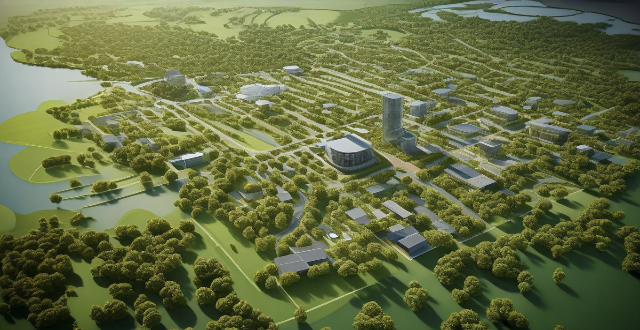Encouraging individuals and communities to take action on climate change adaptation requires a multi-faceted approach that includes education, policy changes, economic incentives, community engagement, and technological innovation. This involves raising public awareness through workshops, media campaigns, and integrating climate change topics into educational curricula. Developing and implementing adaptation policies at local and national levels is crucial, along with promoting green infrastructure and sustainable practices. Offering financial incentives such as tax breaks and grants can encourage the adoption of energy-efficient technologies and eco-friendly products. Support for community-based projects is also essential, including funding for initiatives and capacity building. Fostering community leadership and encouraging civic participation through volunteer programs and town hall meetings can further inspire collective action. Promoting research and development, adopting advanced technologies, and using renewable energy sources are also vital components in this comprehensive approach. By working together, we can build a more resilient future for all.

Encouraging Individuals and Communities to Take Action on Climate Change Adaptation
Climate change adaptation is a crucial step towards mitigating the adverse effects of global warming. Encouraging individuals and communities to take action requires a multi-faceted approach that involves education, policy changes, and incentives. Here's how we can inspire collective action:
Education and Awareness
Raise Public Awareness
- Conduct Workshops and Seminars: Organize informative sessions to educate people about the impacts of climate change and the importance of adaptation measures.
- Media Campaigns: Use television, radio, and social media platforms to spread awareness about climate change adaptation strategies.
Integrate Climate Change into Educational Curricula
- School Programs: Incorporate climate change topics into school curriculums from elementary through high school levels.
- University Courses: Offer courses in climate science, sustainability, and environmental management at universities.
Policy and Legislation
Develop and Implement Adaptation Policies
- Local Ordinances: Encourage local governments to pass laws that support climate-resilient infrastructure and sustainable practices.
- National Strategies: Advocate for national policies that prioritize climate adaptation and provide funding for related projects.
Promote Green Infrastructure and Sustainable Practices
- Building Codes: Update building codes to include green construction standards that reduce energy consumption and improve resilience to extreme weather events.
- Transportation Reforms: Implement policies that promote public transportation, cycling, and walking to reduce carbon emissions.
Economic Incentives and Support
Offer Financial Incentives
- Tax Breaks: Provide tax credits or deductions for households and businesses that adopt energy-efficient technologies or practices.
- Grants and Subsidies: Offer grants for renewable energy projects and subsidies for eco-friendly products.
Support Community-Based Projects
- Community Funding: Allocate funds specifically for community-led climate adaptation initiatives.
- Capacity Building: Provide training and resources to community groups working on climate adaptation projects.
Community Engagement and Participation
Foster Community Leadership
- Community Champions: Identify and train community leaders who can champion climate adaptation efforts.
- Citizen Science Projects: Engage residents in data collection and monitoring of environmental indicators relevant to climate change.
Encourage Civic Participation
- Volunteer Programs: Create volunteer programs where residents can participate in tree planting, cleanup drives, and other environmental activities.
- Town Hall Meetings: Hold regular meetings where community members can discuss climate change issues, share ideas, and collaborate on solutions.
Technology and Innovation
Promote Research and Development
- Research Grants: Offer grants to researchers working on innovative solutions for climate adaptation.
- Technology Incubators: Support incubators that nurture startups focused on climate-related technology development.
Adopt Advanced Technologies
- Smart Infrastructure: Encourage the adoption of smart grids, water management systems, and other advanced technologies that increase adaptive capacity.
- Renewable Energy: Promote the use of solar panels, wind turbines, and other renewable energy sources to reduce reliance on fossil fuels.
In conclusion, encouraging individuals and communities to take action on climate change adaptation requires a comprehensive approach that combines education, policy changes, economic incentives, community engagement, and technological innovation. By working together, we can build a more resilient future for all.